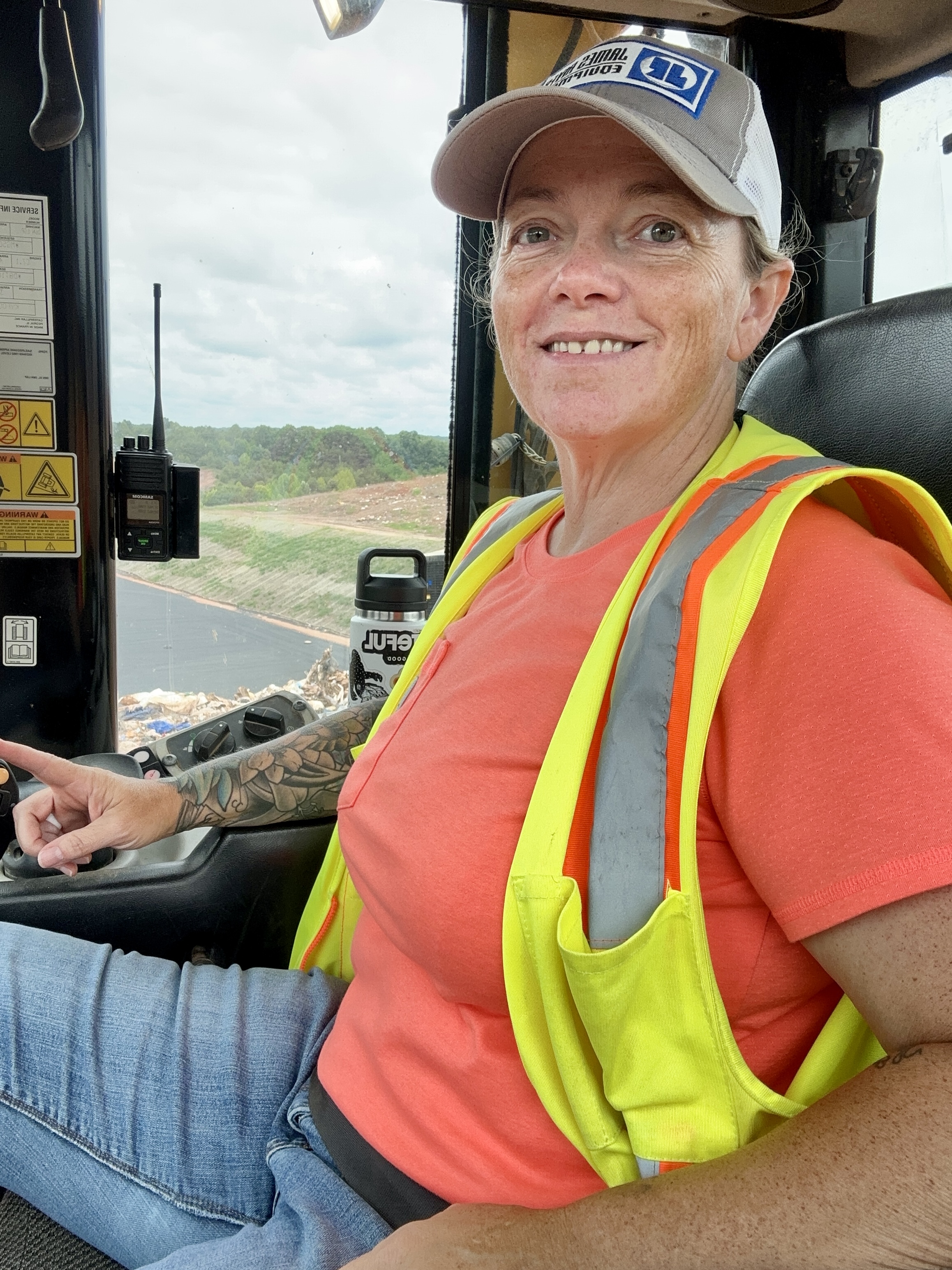Rules keep you safe, people keep you standing
- Crystal Stapley
- Jun 4, 2025
- 4 min read

There’s a chapter in every leadership manual that tells you not to get too close.
“Maintain professional distance.”
“Don’t be friends with your team.”
“Avoid emotional entanglement.”
I get where they’re coming from. But let me tell you something: those rules weren’t written in the field.
Not standing next to the landfill tipper at 5:00 a.m. with frozen fingers, a leaking cylinder, dead battery, and a crew that still shows up.
Not cutting out wheel-wrap from the compactor in 100-degree heat with a single dad running on his third energy drink and second divorce.
Not beside the loader operator who buried his son last weekend but showed up Monday because “the guys are counting on me.”
You think I’m going to pretend that kind of loyalty doesn’t mean something? That it’s just a job? Nah. I’m not built like that.
I've tried it their way.
Tried to draw the line. Keep it business. Stay just far enough away.
I thought if I didn’t get too close, I wouldn’t carry their weight.
I thought I could lead better with my hands off. That's what they teach you. That's what they preach.
But here’s what that got me:
A team that followed instructions, but not me.
People who nodded in meetings but wouldn’t call me when it mattered.
Work got done, but pride was missing. And when things got hard, they didn’t stick around, because neither did I.
Then I stopped pretending.
I learned the names of their kids.
I asked about their weekends and waited long enough to hear the truth.
I went to the field with them when they were short-handed. Set the pump. Loaded dirt trucks. Visited every neighbor.
Not because I had to. But because you earn trust in the doing, not the directing.
And slowly, somewhere between keeping my distance and showing up, it all changed.
They didn’t just show up, they showed up for me.
They covered for each other. Protected each other. Spoke up when things felt off.
We didn't just build trust; we built something you can't clock out of. We didn't plan it, but we became each other's safe place. The kind where people call at 2 a.m. when things go sideways, and you pick up.
The call came late. One of my own, a veteran, still active in the reserves, was out helping recover bodies from a fire so devastating in our neighboring community the news barely had the words for it. He was strong, trained, and capable, but that kind of devastation has a way of reopening things that never fully close. When he called, he didn’t need instructions. He didn’t need a chain of command. He just needed a voice on the other end that felt steady, someone who wouldn’t flinch.
He said, “I knew you’d answer. That’s why I called you, boss.”
And in that moment, titles didn’t matter. Policies didn’t matter.
What mattered was that I had shown up enough times before, for the small stuff, the real stuff, that when it got heavy, he knew I’d be there too.
That’s the kind of leadership no handbook teaches. It’s not about power. It’s about presence.
So no, I'm not ashamed to say I care.
That I’ve cried in the cab of a haul truck after a guy relapsed.
That I’ve stood outside a courtroom with one of my own because he didn’t have anyone else.
That I’ve celebrated clean dates, first homes, and babies like they were my own.
This isn’t softness, it’s strength.
It’s what keeps people coming back when the pay isn’t perfect and the work is brutal.
It’s why team's stick together when others fall apart.
You can keep your HR playbook. You can follow the rules to the letter. But I’ll keep leading people like they matter.
Because they do, and they always will. Because let’s be honest, most of the people writing those HR playbooks have never stood ankle-deep in mud trying to fix a busted band on a corrugated pipe that is now sagging, while the freezing rain is rapidly undercutting it as you try to make repairs with a crew that hasn’t eaten in the last 9hrs.
They talk about boundaries like we’re managing spreadsheets, not people covered in dirt, fighting to make a living, and still showing up when life hits hard.
Those guidelines? They’re built for clean hands and climate control, not fourteen-hour shifts, 110-degree days or waking up to four inches of unplanned snow, and the tarp you need to pull is somewhere underneath it.
What they don’t get is that out here, connection isn’t optional, it’s survival.
You can’t lead people you refuse to understand.
And you sure as hell can’t earn trust by quoting policy while they’re busting their backs managing the waste for the entire city.
I’ve watched more people walk off jobs because they felt unseen than because they couldn’t do the work. And I’ve watched crews go to war for leaders who simply treated them like humans, flawed, real, gritty humans, because respect runs deeper than rules.
So no, I won’t lead from a distance.
I won’t sanitize my leadership for the comfort of someone who’s never had to hand-sweep a dirty load or fight for a working compactor before a hurricane rolls in.
I’ll keep showing up the only way I know how, present, personal, and fully in it with the people.
Because that’s how you build loyalty.
That’s how you get performance that a manual can’t touch.
And that’s how real leadership works, not in theory, but in the field.
So go ahead, quote your policy. I’ll be out here in the field, building a crew that would follow me through hell. Not because I said so. But because I started right there with them, long before your playbook even existed.





Comments